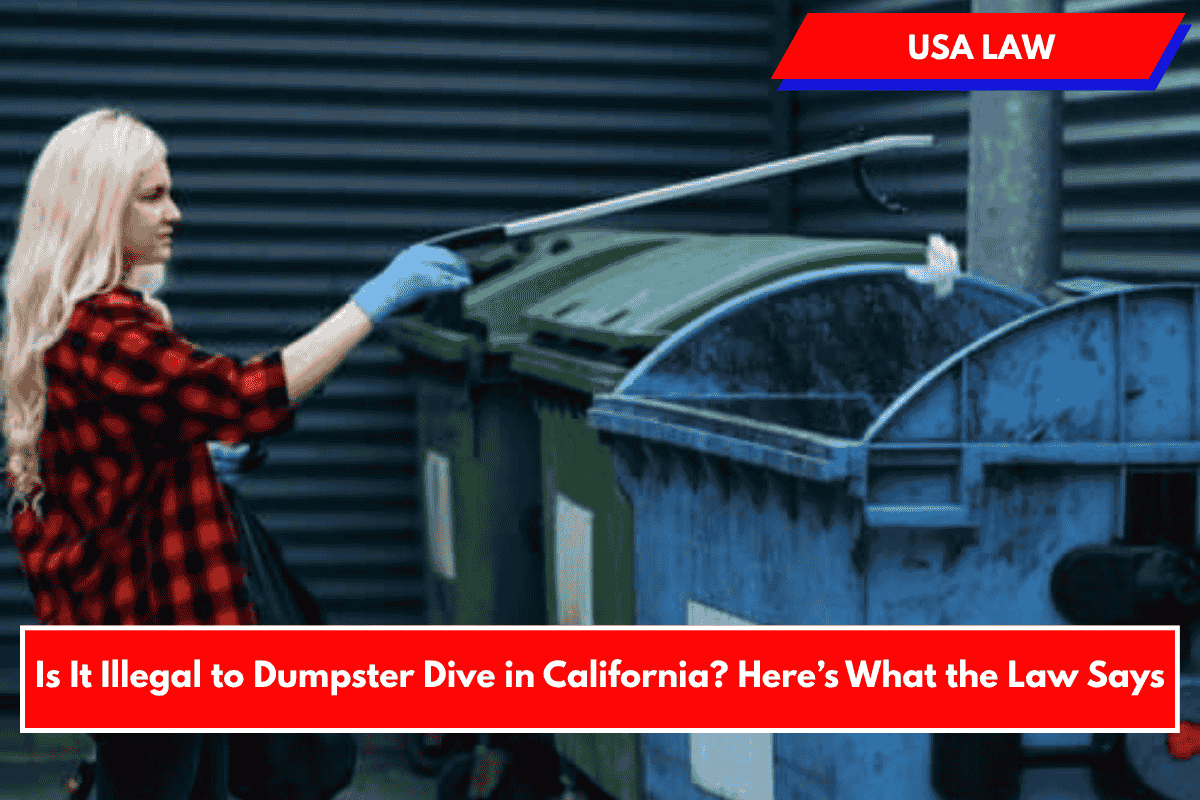Dumpster diving—searching through trash bins for discarded items—sits in a legal gray area in California, but the key factors are location, property rights, and local ordinances.
Legal Status in California
- Generally Legal on Public Property: Dumpster diving is generally legal in California, thanks to the 1988 Supreme Court case California v. Greenwood, which held that there is no reasonable expectation of privacy for trash left in public spaces. Once trash is placed on the curb or in a public area, it is considered abandoned and free for anyone to take.
- Local Ordinances Matter: Some cities have specific rules about when and where you can dumpster dive, such as restrictions on hours, locations, or types of containers. Always check local regulations before divin.
When Dumpster Diving Becomes Illegal
- Private Property: Dumpster diving becomes illegal if the dumpster is on private property—such as behind a business, inside a fenced area, or in a gated residential complex—without the owner’s permission. Entering private property to access a dumpster is considered trespassing under California Penal Code 602 and can result in fines up to $1,000 and/or up to six months in county jail.
- No Trespassing/No Dumpster Diving Signs: If there are posted signs prohibiting trespassing or dumpster diving, or if dumpsters are locked or behind barriers, it is illegal to access them. Forcing entry into a locked dumpster may also be considered vandalism or theft.
- Commercial and Residential Complexes: Many businesses and apartment complexes secure their dumpsters with locks or place them within gated enclosures, making unauthorized access illega.
City-by-City Variations
- Cities like Los Angeles and San Francisco are generally more accepting of dumpster diving, especially in residential areas or behind small businesses. However, high-security areas, large department stores, and government buildings often prohibit the practice.
- Some cities restrict dumpster diving during certain hours (e.g., Los Angeles prohibits it from 10 pm to 6 am in some areas).
Best Practices for Legal Dumpster Diving
- Stick to Public Spaces: Only dive in dumpsters that are clearly on public property and not behind fences or gates.
- Respect Signs and Barriers: Never ignore “No Trespassing” or “No Dumpster Diving” signs, and do not tamper with locks or barriers.
- Ask Permission: When in doubt, seek permission from property owners, especially behind businesses or in residential complexes.
- Check Local Laws: Use resources like city websites or apps (e.g., Trashwiki, Freegan.info) to check local ordinances.
- Leave No Trace: Clean up after yourself to avoid littering, which can also result in fines.
Table
| Location Type | Legal to Dumpster Dive? | Key Restrictions |
|---|---|---|
| Public property | Yes | Check local ordinances and signage |
| Private property | No (without permission) | Trespassing laws apply |
| Locked/gated areas | No | Forcing entry is illegal (vandalism/theft) |
| Areas with posted signs | No | Signs must be obeyed |
Dumpster diving is generally legal in California when done on public property and in compliance with local rules. It becomes illegal if it involves trespassing, ignoring posted signs, or breaking into locked or gated areas. Always check local ordinances and respect property boundaries to stay on the right side of the law
Sources
- https://sirixmonitoring.com/blog/is-dumpster-diving-legal-in-california/
- https://en.wikipedia.org/wiki/Dumpster_diving
- https://www.sandiegoreader.com/news/2020/jun/10/cover-san-diego-dumpster-divers-honor/
- https://www.theenvironmentalblog.org/2025/04/is-dumpster-diving-legal/
- https://www.lawyer-monthly.com/2025/02/is-it-legal-to-dumpster-dive-a-comprehensive-guide/











